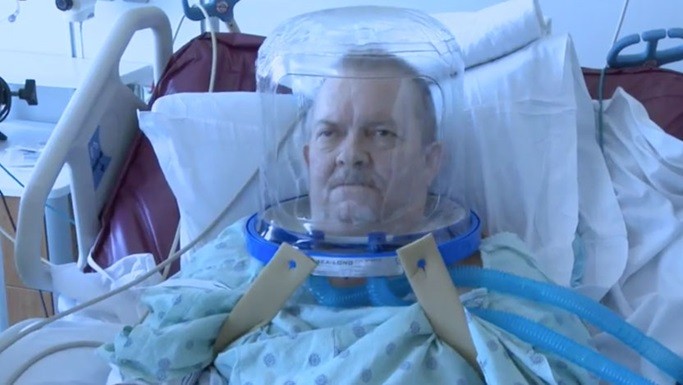
As a means of bridging the gap in shortage of ventilators for treatment of patients with respiratory distress in Nigeria, the Nigeria Institute of Medical Research (NIMR) in collaboration with foreign scientists have donated 190 helmet-based ventilators to the country.
Of the 190 helmet ventilators, 60 have been deployed to the Federal Ministry of Health, while seven teaching hospitals- Lagos University Teaching Hospital (LUTH); FMC Ebutte Meta; FMC Abeokuta; University Teaching College, Ibadan; Amino Kano University Teaching Hospital; Kano; University of Nigeria Teaching Hospital, Enugu; and Delta State University Teaching Hospital, have received six each of the ventilators.
Fielding questions from journalists at the two days Train-the-Trainers CIRCUM VENT Training organised by NIMR, on Thursday, the Director General, Prof. Babatunde Salako explained the objectives of the programme, which is to provide ventilators in resource-limited settings, along with a streamlined kit of equipment that expands patients treatment options, while safeguarding healthcare providers from exposure to aerosolized SARS-CoV-2.
He said the training is to equip medical trainers with the knowledge of using the newly introduced helmet-based ventilators, while they are expected to return to their institutions to impact their colleagues with the acquired knowledge for optimal usage of the machine.
The NIMR DG also mentioned that the first phase distribution of the equipment is to test the acceptability among patients and to see whether it protects or predisposes users to the infection.
“ A group of American and Nigerian scientists came together to brainstorm on how to assist the nation with the supply of ventilators, then we decided to convert a machine use for treating patients with lungs disease to a non-invasive ventilator. We also designed an helmet to work with the machine.
“The difference between the other ventilator and this new one is that the former usually connect a pipe from the patient's throat to oxygen, while the new ventilator allows patient to firmly fits the helmet on his head without any disruption in the throat and breath easily through it.
“COVID-19 is still very much with us so we must make every effort to reduce mortality from it.The device is also very useful in preparation for a second wave òf COVID-19 in Nigeria, as they are experiencing in America and Europe presently”, he stated.
Salako also noted another advantage of the new device over the former, saying it is moveable to patients bedside for treatment, while the old one has a heavy machine which can’t be moved.
Previous studies have also given credence to the use of helmets instead of face mask in severely sick patients, as they found that helmets help these patients breathe better than face mask.
In a 2016 study, researchers from the University of Chicago Medicine led an investigation showing that using these helmets instead of standard face masks that cover the nose and mouth helps critically ill patients breathe better and can prevent them from needing intubation with a ventilator machine.
Patients with helmet ventilation also spent less time in the intensive care unit and had better survival, the scientists found.













